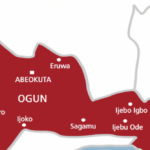Is there a connection between the high numbers of illiterates in Nigeria with the present insecurity in the country?
The theme of this year’s International Literacy Day seems to suggest so – Literacy for Peace is the theme.
Dr. Joseph Ngu, the Country Representative of the United Nations Educational, Scientific and Cultural Organisation, UNESCO, in Nigeria thinks so.
“Literacy for peace means that lasting peace is found on the respect of human rights and social justice. So that is very important. And literacy, which is the foundation of learning, is one of those rights. Literacy is a prerequisite for peace,” he said.
Each year, on the 8th of September, UNESCO marks the International Literacy Day. This year in Abuja it was held not on the eight but on the 28th of September following the unfortunate bomb blast at the UN house which claimed several lives on August 26.
With the increased violence being witnessed in Nigeria and with the bombing of the UN House, where normally ceremonies to mark the day would have held, isn’t the theme for this year a bit ironic?
“Exactly. It’s very ironic,” Dr. Ngu agreed. But he also believes it is timely in drawing the attention of interested parties to the plight of the millions of illiterates in the country who are being educationally marginalised.
“I hope the more people are literate, the more they are educated, the more they are able to understand each other and make constructive choices, the more they are able to live peacefully together. It is only through literacy that peace can be sustainable,” he said.
His words echo those of the Director-General of UNESCO, Irina Bokova. She is particularly concerned about the 793 million illiterate adults in the world and the 67 million children of primary school age and the 67 million adolescents who are out of school.
“This unacceptable situation is holding back all efforts to reduce poverty and advance human development. It is an infringement of human rights, and fundamental freedoms and a threat to peace and security,” she said in a message read by Dr. Ngu.
Events to mark this year’s day were held at the boardroom of the National Commission of Colleges of Education, NCCE, and had international development partners and key personalities in the education sector in attendance. One of them was the Executive Secretary of the NCCE, Prof. Muhammad Junaid.
“We simply don’t have enough teachers to teach adult literacy,” he said, assuring that his commission is determined to develop a workable curriculum to address this shortage.
In his keynote address, Prof. Victor Owhotu of the University of Lagos said a number of factors are militating against efforts to bring down the number of illiterates in the country. He points to the nine million almajiris roaming the streets and weak commitment of the government to implementing education policies over the years. A disturbing statistic the professor highlighted is the two million enrolments recorded in 2009 as against the anticipated 28 million, leaving experts baffled as to what happened to the 26 million others who never turned up.
But all hope is not lost. Dr. Rosemary Nwangwu of UNESCO said the 2015 target for education for all may not be achievable, but something can be done about the number of illiterates in the country.
“We can bring this down by designing a coherent system for literacy delivery, that is not ad hoc but actually addresses the challenges we have had over time, like the language, like the people who are always escaping the net. We can begin to work,” she said.



